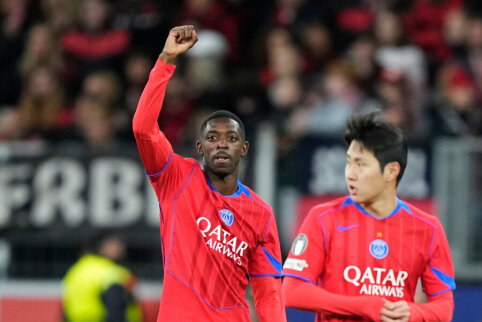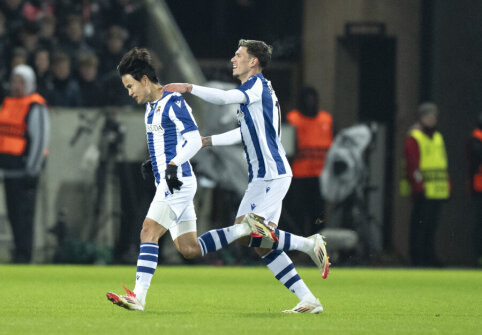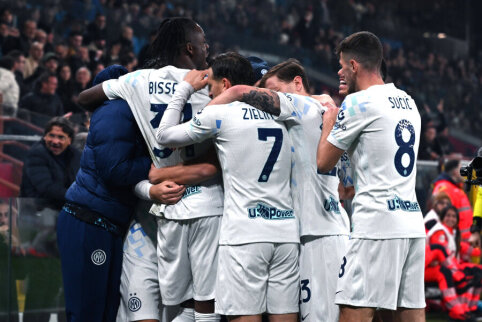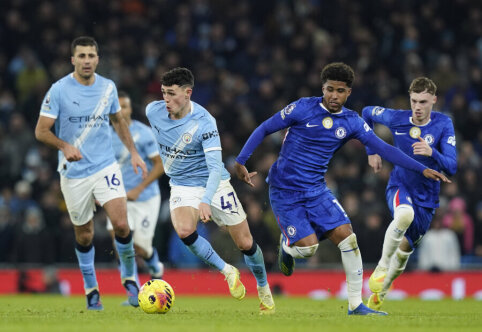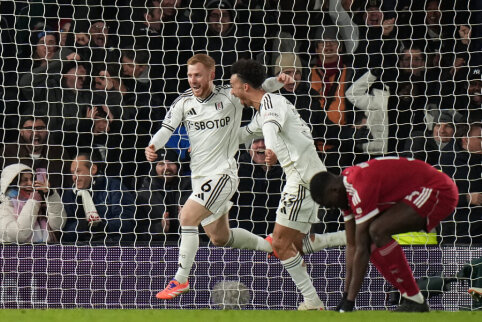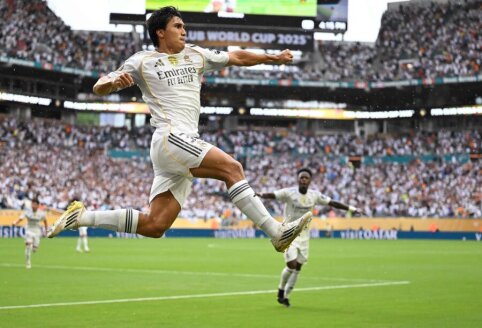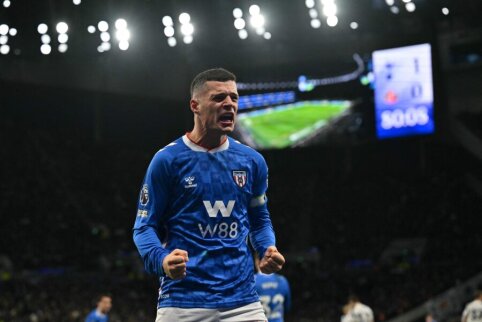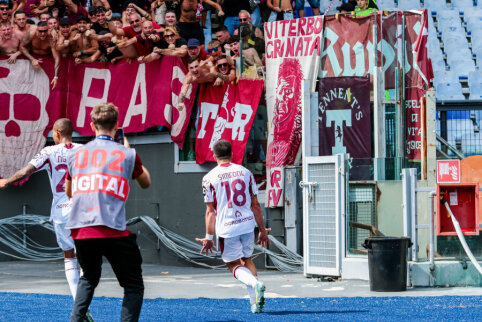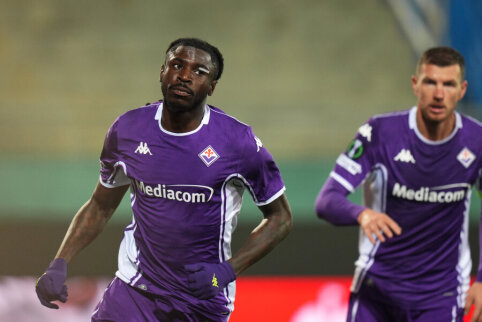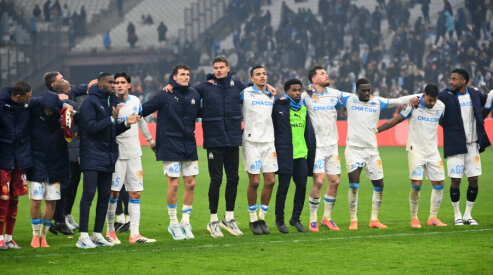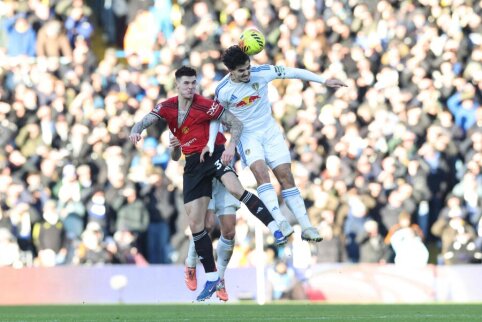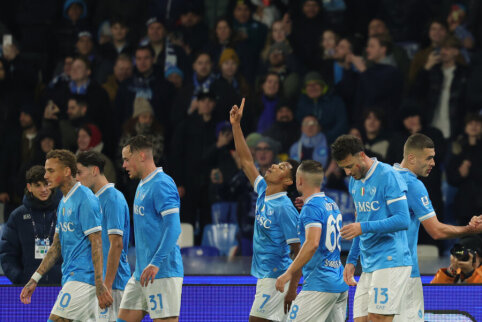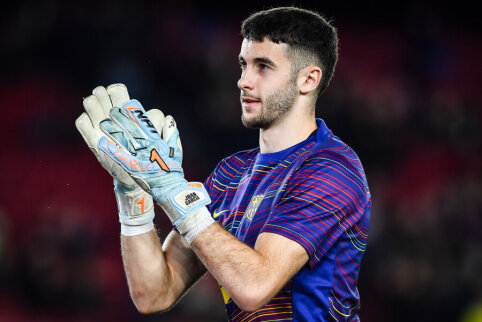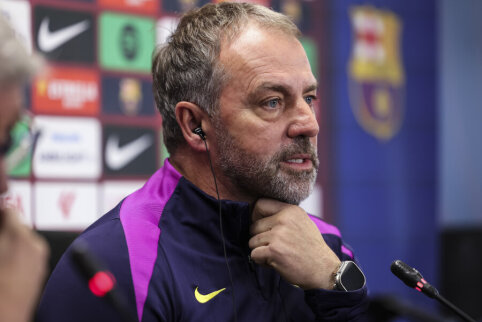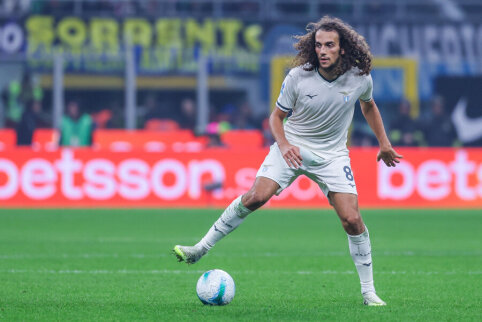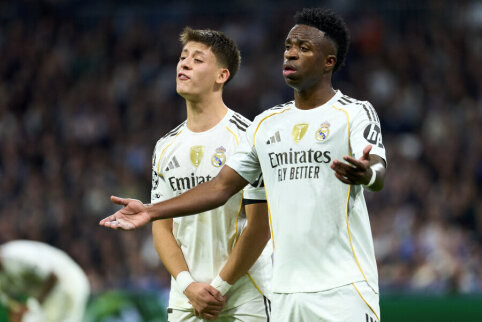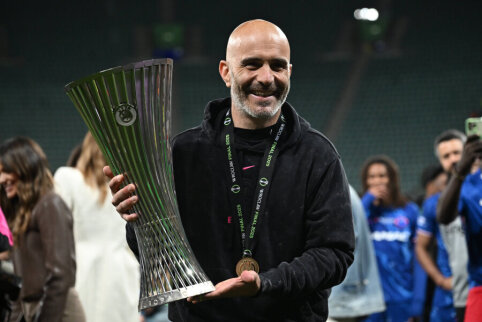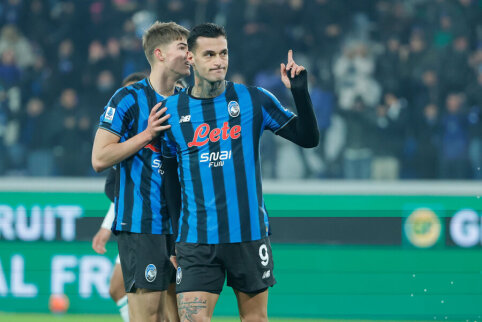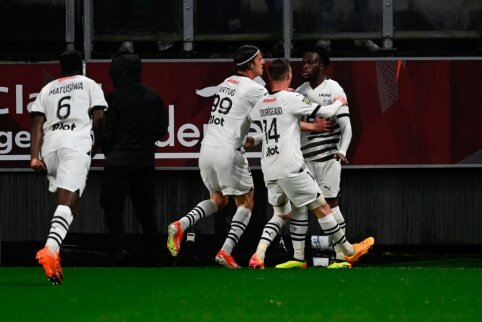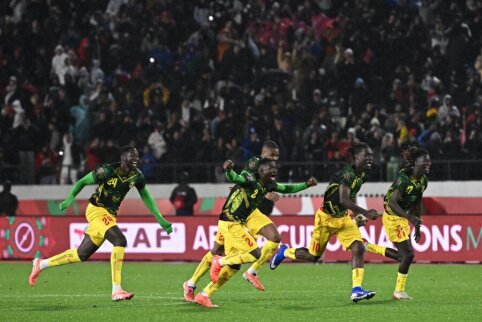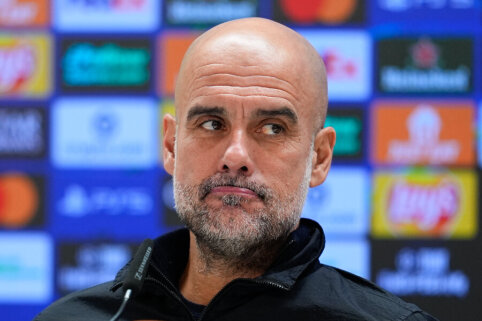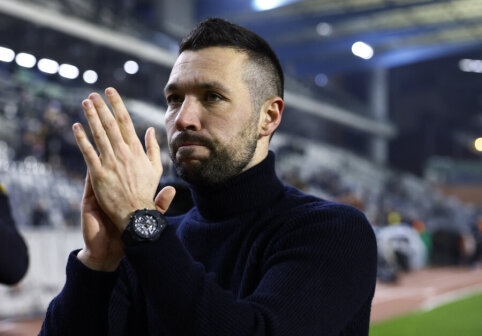 © EuroFootball.com
© EuroFootball.com
It's easy to score goals when you're 20, when you're young, full of strength and energy, and any sea seems shallow to you. It's a different story - not to lose striker qualities when the years start to take over. This is only successful for a few. There is no doubt that if you start talking about this topic with any English fan, he will say without thinking: "We have such a player!". And the question - "Who is he?" may remain unanswered.
Because he is Alan Shearer. A man - a goal. A footballer who has been missing from the England team in recent years. This season was supposed to be the last for Shearer. But the 34-year-old striker (Shearer will turn 35 in August) still hasn't lost his desire to score goals. Probably that's why he decided to extend his career for another year.
Father told to be a plumber
"I don't know what would have become of me if I hadn't become a footballer. In the school questionnaire in the 'what would you like to become in the future' form, I stubbornly wrote - a garbage man. I wrote until my father told me to write something else there. Then I started writing 'plumber'. That's how Shearer talks about his childhood. It is unknown if he would have become a great plumber if he had actually chosen this profession, but football would have suffered a huge loss in that case.
But it simply could not happen. Because young Alan was simply obsessed with football. It wasn't just a priority for him, it was also second, and third... Alan didn't study very well, to be honest. The English language was a particularly big problem. But the boy wasn't aiming for an academic career. He wanted to play football. And he simply dreamed of playing for his hometown team - Newcastle. But luck wasn't on his side. He wasn't chosen after the tryout.
Failure in his hometown didn't break Shearer. He loved football too much to give it up. At the age of 14, he traveled to another part of the country, from north to south - to . There he was accepted. It took him three years to make it to the main team's first match...
"Hat-trick" during debut
The debut took place on April 9, 1988. Southampton played against Arsenal. Shearer took to the field, and an hour later, he left it accompanied by enthusiastic cheers. He not only scored in his first match - he made a hat-trick. I wonder what that children's coach who did not accept the boy in Newcastle thought at that moment. He probably regretted his terrible mistake. Five days later, on April 14, Southampton bosses called Shearer to them and offered to sign a professional contract. It was not the five million pounds per year Shearer receives now, but back then he gladly accepted this offer. And... Stopped scoring. Well, could anyone have expected constant hat-tricks from an inexperienced youngster? Especially when suddenly faced with a whole new world?
Shearer was able to prove himself at the Southampton club only after two and a half years. At the same time, his relationship with the national team began to develop. Initially, with the youth team. In 11 matches representing the team, younger than 21 years old, he scored 13 goals, giving him the opportunity to talk about himself as the heir to Gary Lineker. And on February 19, 1992, Alan made his debut in his country's main team in a match against the French. And what would Shearer's debut be without a goal!
New life in Blackburn
In England, Shearer's hunt began. The most accurate "shot" was Jack Walker, the owner. Head coach Kenny Dalglish managed to persuade him to invest money in a rising star, and Shearer moved to a new team, while Southampton's coffers were filled with £3.6 million.
Dalglish didn't shoot with the purchase. And Shearer didn't fail with the new team. In the Blackburn club, he became a cornerstone, with whom the Rovers began their journey to championship heights. Shearer was fortunate with his striking partner Chris Sutton. Together, they posed a real threat to the opponent's defense. Shearer had everything he needed to score goals - he had excellent speed, positional selection, goal-scoring intuition, powerful shot. In addition, he played head games brilliantly.
Alan's star hour came in Euro-96, where he became the most productive player of the tournament with five goals to his name. After those championships, Alan became a true icon for English football fans. It's just a pity that all his goals didn't help England win the tournament. The team stumbled again in the penalty shootout.
After that, the manager of the England team changed: instead of Terry Venables, Glenn Hoddle took over. And he entrusted Shearer, who had already moved to (can't escape fate?), with the captain's armband. At the same time, realizing the old and secret dream of Alan. "Like all teenagers who played soccer with me in the yard," Shearer says, "Of course, I dreamed of playing for the national team. But the thought that I would become its captain never even crossed my mind. And I was determined to enjoy every moment in the captain's position."
Only the first place
Next was the World Cup in France, where England again lost in a penalty shootout (Shearer, as always, scored his attempt), and then Euro-2000, after which Alan decided to leave the national team. "Understand, it's time," he said back then. "We need to make way for the young ones. And I intend to concentrate on my performances for Newcastle. I don't want fans to say that they wasted insane amounts of money on me."
It was rumored back then that Shearer's decision was influenced by the situation in the family - his wife was expecting their third child. Be that as it may, he did not change his decision. And he kept scoring for Newcastle.
He was tried to be brought back to the national team twice - before the 2002 World Cup and before Euro-2004. "If I were the coach, I would have fallen to my knees and asked Shearer to participate in the 2002 World Cup," said Glenn Hoddle, who was already coaching Tottenham at the time. The current captain David Beckham also invited him to return. But Shearer remained adamant. Perhaps, he understood that he could no longer be the best. Immediately remembered was January 1997, when Shearer was recognized as the third best player in Europe after Ronaldo and George Weah. Then he didn't even celebrate and refused to attend the banquet that took place after the ceremony. "There is only one place for me - the first one," the striker said. "Let others be in second and third places!"
Despite his refusal to return to the national team, fans still believed that Shearer would represent the national team again. When a poll was conducted in England before the 2004 European Championships about who people would like to see in the attack alongside Michael Owen, the majority - 34 percent - cast their votes not for Rooney, Alan Smith, or Daniel Defoe, but for Shearer. And now Newcastle fans rejoice, knowing that Alan has postponed his retirement from football, and for another year he will delight them with his feats in attack.
